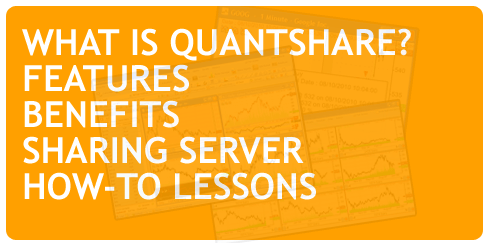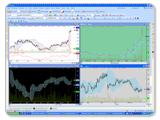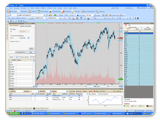 Indices are basically an imaginary portfolio made up of many securities that are used to measure or track the movement of a stock market. While stock indices can be charted and tracked just like any individual security, it cannot be traded directly. However, you can trade on derivatives market that uses stock indices as its underlying commodities. Thus, when you hear people say that they’re short on NASDAQ or S&P500, they’re not really into index day trading; rather, they may be short on options or futures market with those indices as underlying asset, such as the ES Futures Market and NDX options. Index Options Trading index options are derivatives that give you the right, but not the obligation, to buy or sell a portfolio of securities like FTSE 100 and Standard and Poor’s 500. Options on varying market indices allow traders to speculate and trade on broad market segment’s movement in one transaction as opposed to trading on individual securities. It is important to note, however, that since there’s no real trading for the underlying asset; the value of index options exists only in paper. If you wish to day trade indices through the options market, Chicago Board Options Exchange (CBOE) happens to be the world’s largest options market, which lists index options contract that can be day traded. For example, if you wish to day trade Dow Jones Industrial Average Index options, DJX is the ticker for that; OEX is for S&P 100 Index options; NDX is for NASDAQ 100 Index Options; and RUI is for Russell 1000 Index Options. Advantages of Options Index Day Trading • Leverage One major reason why many professional day traders plays index options contract is the high level of leverage afforded to them. Leverage is not just confined to margin accounts like typical stock trading accounts. In options index day trading, you can obtain a position on an index without committing the entire amount to buy the underlying asset. To illustrate this, say you believe that SPY is going to rally and its price is currently at $153. In a typical stock day trade (though, it’s not possible to day trade SPY), you’d have to shell out $15,300 to go long on 100 shares of SPY. However, in an options trade where a contract price is say, $20, you just have to shell out $2,000; and you still take advantage of the price movement of the index. • Flexible Tool Options are also flexible instruments that traders can take advantage of to make some strategic plays. Advanced day traders use index options as a hedge to their existing positions in other markets. Index Futures Trading Similarly, futures market is another financial derivative market where you can day trade stock market indices as underlying asset. index futures are settled in cash rather than on the delivery of the stock certificates since it is based upon the price of an imaginary portfolio of separate companies. That means that if you hold a futures contract when it expires, your trading account will be adjusted to reflect the profit or loss you incurred, which is calculated based on the exchange’ settlement price. There are various index futures for American, European, and even Asian markets. For example for US index futures market, ES is the mini S&P 500 index future of Chicago Mercantile Exchange; NQ is the mini NASDAQ index future of the Chicago Board of Trade; and YM is the mini Dow Jones index future. For European markets, Z is the FTSE100 index future of London International Futures Exchange, and CAC40 is Euronext Paris’ CAC40 index future. And for Asian markets, SPI is Australian Stock exchange 200 index future, and HSI is Hong Kong’s Hang Seng index future. Advantages of Futures Index Day Trading • No Pattern Day Trading Rule One distinct advantage of day trading index futures is that you’re not subjected to the Pattern Day Trader Rule; thus, you can open account for as low as $4,000 and execute many trades that are well within the limits of your initial capital. • Leverage Like index options trading, you get to "own" futures contract at a fraction of the contract’s value. This means you get to take advantage of a commodity’s movement without staking much capital on the position. Another major advantage these two index day trading market offers is diversification. After all, by trading indices, you get to focus on one transaction and one position and it’s as if you’re posed to profit from the price movement of separate companies across the same or different sectors. Momentary market “noises” and deviations won’t affect much of an index’ price movement unlike individual securities; so trends and other patterns are more defined. Futures and options index day trading offers varying advantages to day traders. However, like any market, it takes strategy and experience to make these financial instruments churn out profits for you. However, once you are acquainted with the complexities of these markets, you’re well on your way to the big league where big players make most of their profits. comments powered by Disqus |

|
|
|
|







